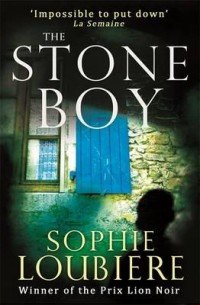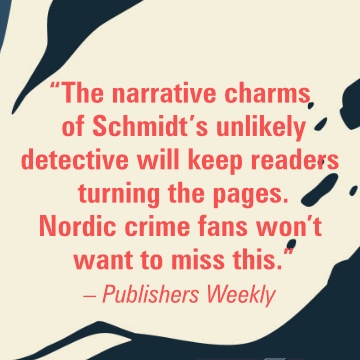Translated by Nora Mahony — Sophie Loubière won the Prix Lion Noir in France with this tricksy yet subtle psychological thriller. She has written several books but The Stone Boy is the first to be translated into English, so we’re claiming her for New Talent November.
Loubière’s the latest French crime-writing import alongside Fred Vargas, Bernard Minier, Antonin Varenne and the late Pascal Garnier. For those, like me, who found Pierre Lemaitre’s hit procedural Alex gratuitous and grisly, The Stone Boy is an oddly reassuring read given its psychological extremes. The publisher compares Loubière to Barbara Vine and Erin Kelly, to which I’d add Norway’s Karin Fossum, whose cunning prose can make you question appearances in a way that might render everyday life a disquieting experience.
Loubière introduces us to her disturbed protagonist, Elsa Préau, with a bold narrative sweep that starts way before the beginning of this novel’s bizarre story. In post-war France, the young Elsa shocks her family by confessing she has conversations with the ghost of her dead mother. Thirteen years later in 1959 we witness her odd games with cousin Gérard, which involve her demanding him to squeeze the life out of her. “Do it again. Suffocate me in your arms. Make me die again,” she tells him.
Despite Gérard’s squeamish reaction, the pair later marry and have a son, Martin, and we glimpse their family life – and the apparent decline of Elsa’s sanity – over a fragmentary narrative incorporating letters to her husband, daughter-in-law and the council, the pettifogging complaints suggesting an obsessive nature. Towards the end of this opening section covering several decades, it becomes clear Elsa’s been cut adrift from her family. Her husband’s left to pursue his medical career in Canada, while Martin’s wife Audrette is refusing to let Elsa see her grandson, Bastien. Because of her concern for Bastien’s health, Elsa takes matters into her own hands and collects him from school, but this outing with granny has a terrible ending – although Loubière leaves us to wonder exactly how terrible.
In the second section of the book, we find Madame Préau at her home in the eastern suburbs of Paris near the present day. She’s now 71, increasingly cranky and difficult with her son, a doctor. “As a matter of unshakeable habit, Mrs Préau would ask her son a disagreeable question over dessert,” we are told as she interrogates Martin about his father.
It’s this sort of antagonistic behaviour that makes Madame Préau (I refuse to anglicise this formidable Frenchwoman’s title as the translator has done) such a strong character, though it’s not clear if we’re supposed to sympathise with her or fear her. Perhaps both.
She frequently inquires about Bastien, though we never see him, so perhaps to make up for this void she spies on the neighbours’ children. The trouble is that Madame Préau’s convinced there are three children, yet the family only ever presents a brother and sister. She gives the girl piano lessons to probe further, contacts social services and enquires at the local school, where she used to be head teacher, yet no one can accept she’s seen another child, who Elsa believes is the victim of abuse.
When she notices that the troubled boy gathering stones in the garden shares a resemblance with Bastien, you suspect she’s experiencing some psychological trauma connected to her absent grandson. Loubière’s sharp-witted yet apparently delusional protagonist draws you into her strange thought processes so that you feel complicit with her mission to save the stone boy, even though you dread where this might be heading.
The resolution may be a bit neater than is necessary and there are a few stylistic quirks, such as references to Elsa’s ‘moleskin’ notebook when the original French text clearly refers to the familiar Moleskine brand. Fortunately, such oddities don’t disrupt Loubière’s compelling psychological exploration of Madame Préau. She’s a captivating and complicated character who just might turn out to be the neighbour from hell.
Trapdoor
Print/Kindle/iBook
£6.99
CFL Rating: 4 Stars











